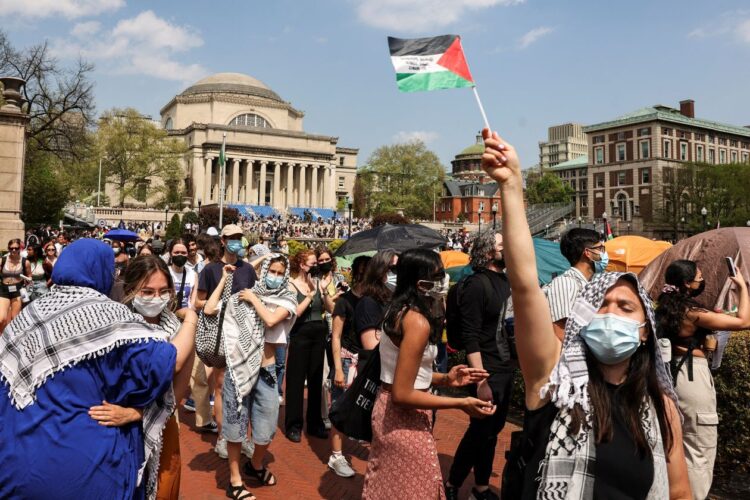In a bid to crackdown on a prolonged protest, the Columbia University has taken a stern stand by suspending pro-Palestinian students who persisted with encampments on its New York City Campus. After the university president Nemat Minouche Shafik disclosed that the negotiations between student organisers and academic leaders failed a deadline set for students. Those who failed to comply are now being suspended.
Columbia’s ultimatum delivered in a letter on April 29, 2024, stipulated that students must dismantle the encampment by 2:00 PM or face suspension, rendering them ineligible to complete the semester in good standing. University spokesperson Ben Chang emphasised the necessity of this measure, citing the disruptive impact of the encampment on campus activities and its adverse impact on the university Jewish students and faculty.
“We have begun suspending the students as part of this next phase of efforts to ensure safety on campus said Ben Chang, a university spokesperson at a briefing on April 29, 2024 evening. The standoff at Columbia coincided with police intervention at the University of Texas at Austin where numerous students were arrested on a pro-Palestinian rally.
President Shafik, addressing key demands of the protesters affirmed Columbia university decision not to divest from investments in Israel. Instead, she proposed investments in health and education in Gaza and pledged greater transparency in the university financial holdings.
Meanwhile, student demonstrators have remained absolute in their demands which include divestment, financial transparency and amnesty for those disciplined for participating in protests. In response to the university actions, the leaders of the Columbia Student Apartheid Divest coalition reaffirmed their commitment to their cause emphasising the human toll of the conflict in Gaza.
Amid escalating tensions, pro-Palestinian demonstrations continue to spark debate on university about raising questions about the boundaries of free speech and hate speech. The protest has underscored divisions within the university communities with some students alleging censorship and others expressing concerns about anti-Semitic rhetoric.
As campuses grapple with these challenges, civil rights group have criticised the law enforcement tactics employed during protests, including the use of pepper spray and arrests Recent incidents at various universities including Virginia Commonwealth University and Virginia tech have highlighting the ongoing clashes with protestors and authorities underscoring the complexity of managing dissent and maintaining campus security in the face of polarising issues.





















Comments